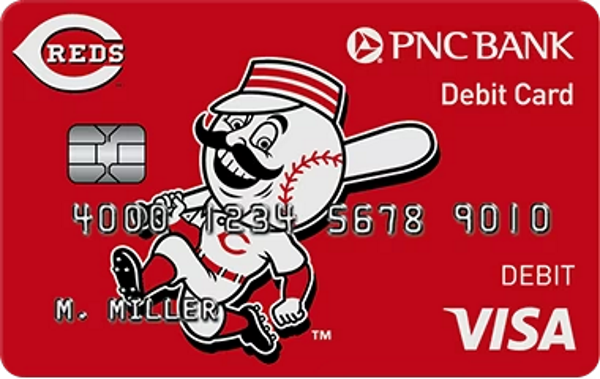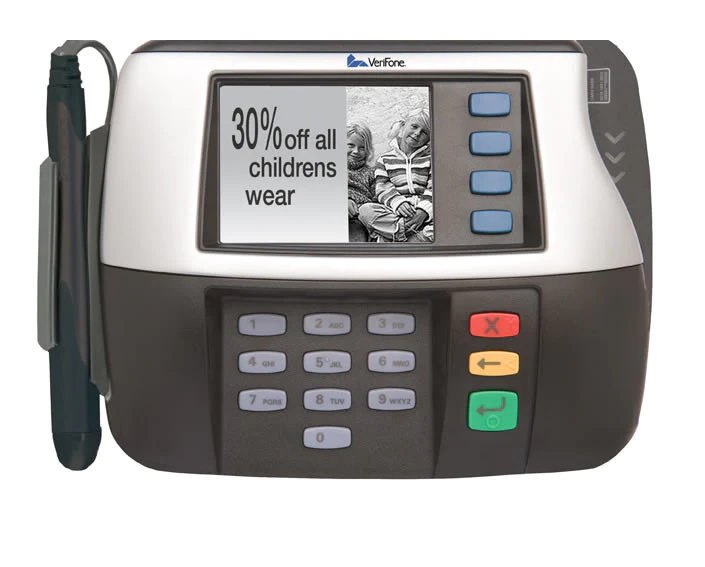
If you make a lot of purchases at a particular store, a store credit card may be more beneficial than a general-purpose card. Furthermore, you will qualify for future discounts, sales announcements, and special offers.
Store credit cards from large shops are commonly accepted even if your credit is less than perfect. Many of these products have evolved in recent years, delivering higher incentives and becoming more helpful for daily purchasing. According to CreditCards.com, more than six out of ten individuals in the United States have applied for a store credit card at some point. And around two-thirds of them have done it on the spur of the moment at least once. In addition, the cashier will be compensated for selling you the card. Let us see more about this credit card in the further section.
Join the Accepted Platinum Credit Card Rewards Program!
Table of Contents
What Is a Store Credit Card?
A store credit card is a sort of credit card that may only be used at one specific store. In simple words, it is a credit card that can only be used in one store or group. Store credit cards are often known as closed-loop cards.
Credit limits on stored credit cards are often lower than those on normal credit cards. Store credit cards function in the same way as other credit cards in that they may be used to pay for products upfront and then the amount is paid off later. However, you must make at least the bare minimum payment each month, and if you do not pay off the debt in full by the end of the month, you will be charged interest. A store credit card’s key selling factor is that it gives you an extra percentage off your purchase price every time users use the card.
How do They Work?
Store credit cards function in the same way as standard credit cards. You use the card to make purchases, which you may then pay off over some time. Every month, you will be forced to make a bare minimum payment to the credit union. Generally speaking, interest rates on retail or store credit cards are greater than those charged by typical credit card issuers. Many businesses may give you a great discount if you use your credit card to make a purchase, and they may also provide incentives such as money off your next purchase if you use your credit card again.
A large number of bank credit cards are available via the store, which is run by the bank. To understand which bank is managing your credit card account and how to make timely payments, it is very important that you thoroughly read the credit card agreement. You could be able to apply for a store credit both in-store and online, depending on your situation. It’s important to go through the interest rates, along with any fees and penalties.
Store Credit Card Benefits
- Earn rewards: If you often shop at a certain retailer, utilising their store card may provide you with higher benefits than a generic rewards credit card.
- Simple to qualify for: A fantastic starting point if you’re trying to develop a credit history or rehabilitate your credit score.
- Discounts and special deals are available: These may include a percentage off your initial purchase, birthday discounts, and reward points.
- Benefits of membership: Some credit cards may provide benefits such as special shopping events or early access to deals.
- Increasing your credit score and reporting to credit bureaus: While your credit will still be reviewed, shop cards are frequently simpler to get than normal credit cards. As a result, if you have a poor credit score, it might be beneficial.
Store Credit Card Drawbacks
- Small credit limits: Store credit cards often have smaller credit limits than general credit cards, making it difficult to keep under the 30 per cent credit use threshold recommended by experts.
- Usability is restricted: Closed-loop store credit cards may only be used at one or a few specific locations.
- Reward redemption choices are limited: You may be limited to redeeming incentives or loyalty points earned with the issuing brand.
- Charges for deferred interest: Instead of a 0% introductory APR, store credit cards may provide deferred interest. This indicates that if you do not pay off your debt before the promotional time expires, you will be charged interest retroactively.
How to Escape the Risks of Using a Store Credit Card
Following are some suggestions to help users avoid getting into debt while using a store credit card:
- Maintain your expense. When you go shopping, make a budget to ensure that you do not spend more than you can afford. If you don’t seem to have confidence in your ability to accomplish this, a store credit card would not be the best option for you.
- Make a complete payment on your existing debt. Generally speaking, the interest rates charged by store cards are greater than the interest rates imposed by conventional credit cards. It doesn’t matter if you’re taking advantage of interest-free periods or are stuck with a high annual percentage rate from the beginning, carrying a balance month after month is a costly habit that may drive you straight into debt.
- Make a note to remind yourself to make a payment. Set up autopay so that you don’t have to worry about remembering to pay your credit card payment on time. Keep in mind that even one late (or less than minimal) payment may result in hefty fines and penalty APRs, which can compound over time. Additionally, it will harm your credit.
- Pay attention to the small print. Many of the problematic terminology associated with these cards are buried deep inside the terms and conditions. Before applying for the card, it is in your best interests to carefully review the terms and conditions, and, if necessary, to get assistance in doing so.
- Use discounts and bonuses wisely. Many shop cards provide a discount just for signing up, such as 20 per cent off on your first purchase when you use the card. Don’t just blow it all on a single item of little value. Wait until there’s something pricey in the shop that you must have, and you’ll get the most out of the discount.
Can Using a Store Card Have an Impact on Your Credit Score?
In general, a shop credit card will have the same impact on your credit as a standard credit card would. In most scenarios, when you apply for a store credit card, the card’s issuer will perform an inquiry on your credit report, which may temporarily lower your credit score by a few points.
Your credit score may be improved if your card issuer reports your activity to the three national credit reporting agencies such as Experian, TransUnion, and Equifax for responsible usage and timely payments. Missing payments and accruing a large amount, on the other hand, might harm your credit score. In particular, retail credit cards, which often have smaller credit limits than standard credit cards, are susceptible to this problem.
Consider this scenario: You meet the requirements for a $400 credit limit on a shop card and a $4,000 credit limit on a standard card. If you placed $200 on each card, your credit usage rate on the store card would be 50% and on the other card would be 5%, depending on the card. Credit experts typically suggest that you maintain your usage rate below 30%, and the lower the utilisation percentage, the better.
Credit usage is the second most significant component in determining your credit score, after payment history, in the computation of your credit score. Because a smaller credit limit increases the likelihood of having a high credit use rate, you’ll need to be extra cautious while using store credit cards and make an effort to keep your balance as low as possible.
Best Store Credit Cards
The best card can be chosen based on its average interest rate as well as other considerations. For example, the average interest rate for store credit cards is higher than the average interest rate for standard credit cards, and in certain situations may reach 24.40 per cent. Some shop cards have lower interest rates, while others have much higher interest rates. Each feature is specific to each card. The following is the list of the best store credit cards for 2022.
Capital One Walmart Rewards Mastercard
It may help you save even more money at the big-box retailer. During the first year, the card gives 5% back on in-store purchases made using Walmart Pay. Online shopping through Walmart’s app or website is the easiest option to keep earning 5% after that. Buying online as well as picking up in-store maximises incentives. You’ll also get 2% back on non-store expenditures like travel and eating. All other purchases get 1%. Rewards may be redeemed for statement credits, gift cards, or trip reservations via the Capital One site.
Gap Visa Credit Card
It could be able to save you money. Additionally, it provides significant customer loyalty advantages. Suppose you earn more than 5,000 points in a calendar year and qualify for Gap Silver membership, which entitles you to benefits such as free basic changes on Banana Republic purchases.
The Gap Visa Credit Card, like the majority of shop cards, has limited redemption options. Additionally, a generic credit card may provide enhanced benefits in a far broader variety of locations or categories, not simply at Gap and its partner businesses.
Target RedCard
It allows you to save money on your purchases right now without requiring you to go through a cumbersome redemption process. If you’re a thrifty spender who shops at Target for clothing, food, and furnishings, the 5% discount on this card might add up to hundreds of dollars in savings every year. Most standard credit cards do not provide additional benefits for shopping at bargain stores such as Target. Cardholders also get free delivery on Target.com purchases and extended return periods, both of which are key loyalty benefits.
This card does not provide 0% financing and has a high continuing interest rate, so it is not a good option if you want to carry a balance. However, if you want to save money at Target by using a card that gives no-fuss discounts, it may be a fantastic bargain.
Amazon Prime Rewards Visa Signature Credit Card
It is more beneficial compared to other credit cards. You can currently purchase almost everything on Amazon.com for a reasonable price with free two-day delivery. But with this card, you may get an infinite 5% back on those purchases, plus 5% back at Whole Foods. Most cards with 5% rewards have quarterly spending limitations. When you use your card at other businesses, you’ll also earn additional benefits in a few more common daily categories. Rewards may be used for Amazon purchases, cashback, gift cards, or vacation.
The card’s flexibility and generous rewards make it a good choice for Amazon Prime members and Whole Foods shoppers. If you seldom use your Prime membership, you may want to choose another card.
Conclusion
The use of store cards may be quite advantageous for people who spend the majority of their shopping in a single location. If you pay off your debt in full within the interest-free period, you will not have an issue with these cards. If you do have a balance on a store card, you can consider transferring it to another credit card. This will enable you to make significant inroads into your debt while also eliminating interest payments. Users have to do is to keep up with their monthly payments to prevent a high average interest rate. However, gathering all of the necessary information regarding the shop credit card you are interested in must be your priority to prevent falling victim to a scam or risk.



